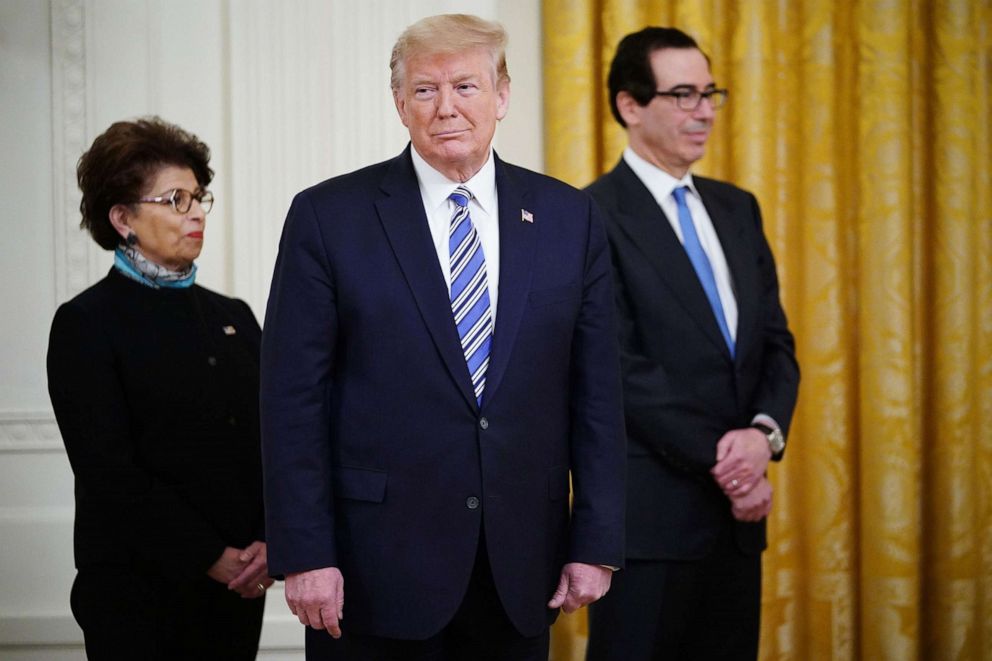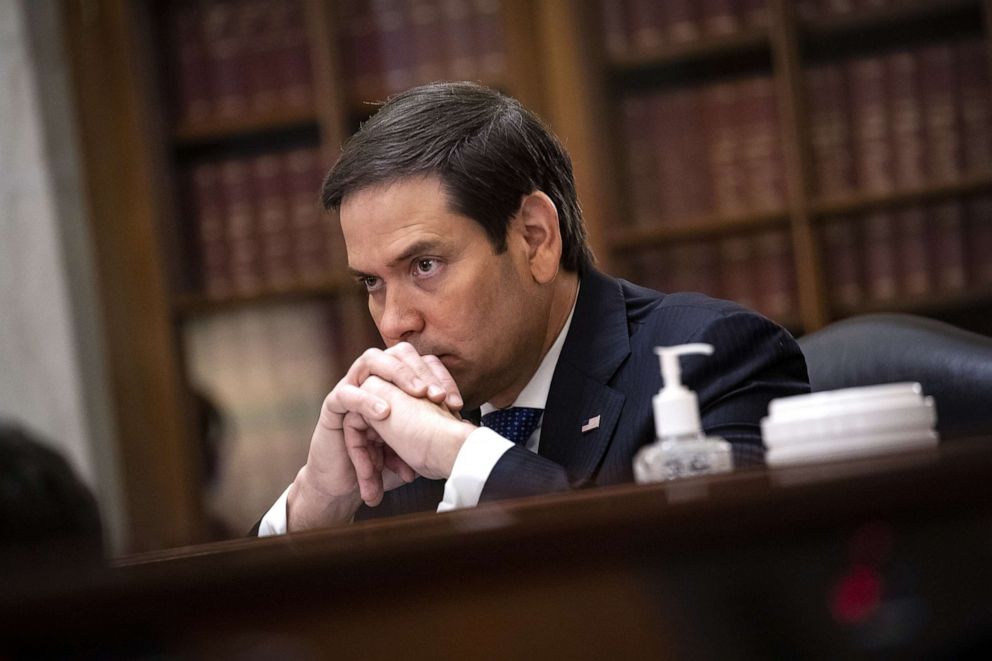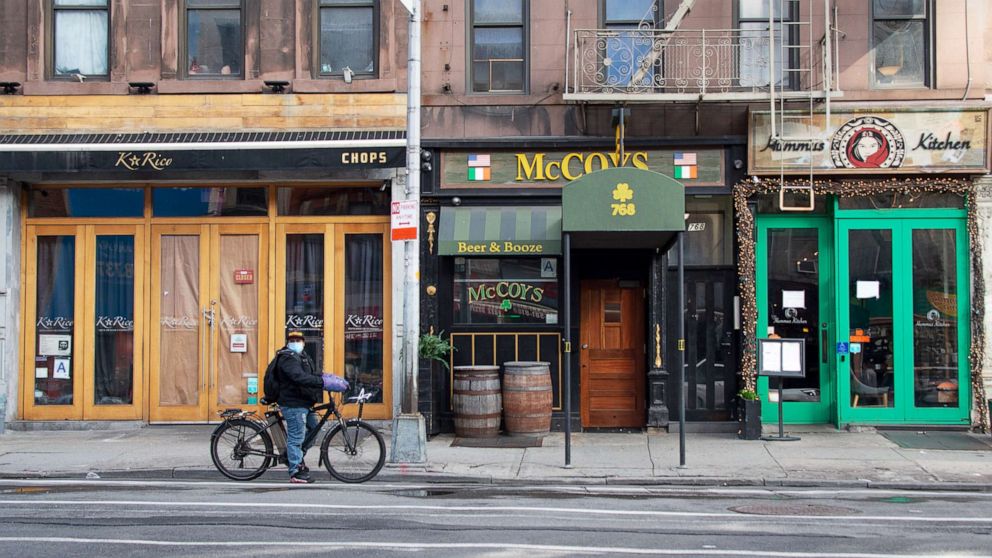Congress extends Paycheck Protection Program; billions remain available
Congress has extended the deadline for small businesses to apply for approximately $134 billion in Paycheck Protection Program funds until Aug. 8.
The House of Representatives approved the extension by unanimous consent Wednesday evening. In an unexpected move, the Senate kicked off the process, also voting unanimously for the extension Tuesday evening. Now, the extension bill will head to President Donald Trump's desk. The president has not yet indicated whether he will sign it, although his administration has been vocally supportive of the program.
The effort comes as the PPP funding is in limbo. The application portal closed to small business owners at 11:59 p.m. Tuesday, the original deadline to apply for the program. If Trump agrees to the extension, business owners will once again be able to access the forgivable loans.

The PPP is a cornerstone effort of the government's emergency coronavirus economic relief plan. Nearly 4.8 million loans have been granted to small businesses faced with shutdowns due to the pandemic, totaling more than $518 billion, according to the Small Business Administration. The loans are forgivable if businesses meet a few guidelines, including using 60% of the loan to keep employees on payroll.
Despite the success of the program, the fact that more than $100 billion remains unclaimed lays bare certain shortcomings. For many small businesses, especially those run by sole proprietors or in economically disadvantaged areas, which may not have access to accounting professionals or experience obtaining loans, the process to receive PPP funding was, and continues to be, daunting. Other small businesses were hesitant to apply for the loans as forgiveness guidelines shifted multiple times, and the prolonged pandemic meant many businesses felt they could not meet the 60% payroll threshold.
For restaurants in particular, PPP has not been a slam dunk. As COVID-19 cases are rising across the country, these businesses are being forced to shutter once again, which has rippling effects across the supply chain. The crisis led one restaurant advocacy group to renew a push to Congress to pass a $120 billion restaurant revitalization fund, in addition to PPP.
In a letter obtained by ABC News, more than 200 restaurant suppliers and trade groups, including Pat LaFrieda Meat Purveyors and Bacardi, are urging congressional leaders to take up the RESTAURANT Act, which would provide grants to restaurants that are not publicly traded and had less than $1.5 million in annual revenue prior to the pandemic. The effort is being spearheaded by the International Restaurant Coalition, an advocacy group whose leadership team includes celebrity chef Jose Andres.
"Since the mandatory closure of restaurants across the United States, we have experienced a near total market collapse for our goods. We were forced to lay off thousands of workers -- ranch hands, chemists, lobstermen, farmers, from every state in the country," the letter says. "If small restaurants are not given direct relief, they will close in debt, and related industries will fail -- permanently."
Tune into ABC at 1 p.m. ET and ABC News Live at 4 p.m. ET every weekday for special coverage of the novel coronavirus with the full ABC News team, including the latest news, context and analysis.
Though need still exists for the money, it does not simply get re-absorbed or rolled over for any other SBA programs, according to the agency. Congress must decide how to re-appropriate it.
"Congress and the administration will consider proposals of how to use the remaining funds. The dollars appropriated for the PPP do not get rolled over to regular SBA 7(a) loan funding (SBA's loan program that existed before COVID) or any other SBA program," a regional spokesperson for the SBA told ABC News.
Sen. Marco Rubio, R.-Fla., chairman of the Senate Small Business Committee, is currently working to re-imagine the program after the current the extension.
"My preference is that we hold on to the $130 billion that was in use and rather than having a revert, using that to fund a second round of assistance to small businesses. Obviously we'll have to be more targeted at truly small businesses and, in addition to that, I'm also developing a program to provide financing for businesses in under served communities or opportunity zones and other zip codes that would fall in that category," Rubio said Tuesday. "I'm very concerned that a lot of minority businesses, particularly black-owned businesses already struggling to begin with, have access to capital."

Sen. Ben Cardin, D-Md., the ranking member on the Small Business Committee, has proposed legislation that would allow the smallest of small businesses to obtain a second round of PPP funding, and extend the application deadline through December, or whenever Small Business Administrator Jovita Carranza sees fit. The idea is to target the businesses that still need help: minority-owned businesses, businesses with fewer than 100 employees and industries like hospitality and retail that have yet to recover since receiving the initial round of PPP loans.
Treasury Secretary Steven Mnuchin testified Tuesday that there's bipartisan support to extend PPP and target it to the most hard-hit businesses. He said expects legislation by the end of July, which means there will be a lapse in the program from July 1 until it is passed.
"I think that there's, there appears to be bipartisan support in the Senate to repurpose the $130 billion for PPP, extending it to businesses that are most hard hit, that have a requirement that their revenues have dropped significantly -- things like restaurants and hotels and others, where it is critical to get people back to work," Mnuchin said.
"I've already had conversations with the SBA committee in the Senate about repurposing that hundred $135 billion and think that should be done, and look forward to working with both the House and the Senate so that we can pass legislation by the end of July," he said.
ABC News' Trish Turner and Mariam Khan contributed to this report.
What to know about coronavirus:
- How it started and how to protect yourself: Coronavirus explained
- What to do if you have symptoms: Coronavirus symptoms
- Tracking the spread in the U.S. and worldwide: Coronavirus map




